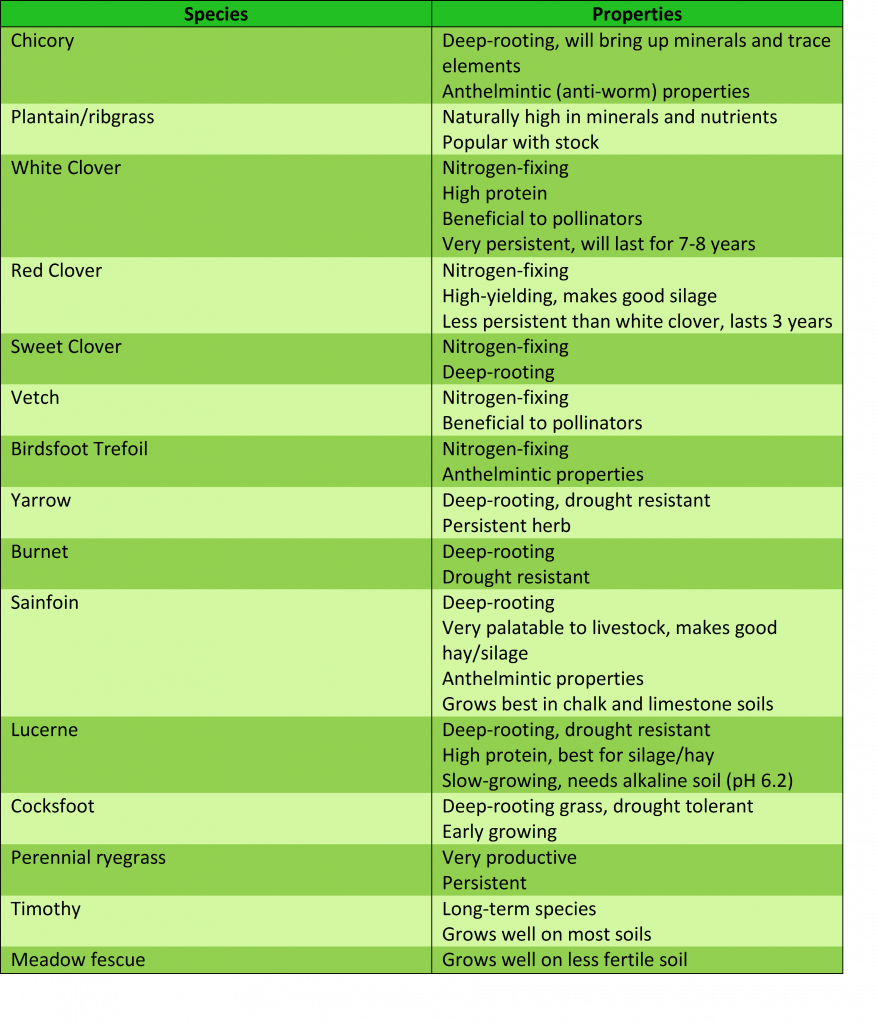Diverse forages offer multiple advantages to the farmer at a time when farm profits are falling and input prices are rising. Diverse leys include a mix of grasses, legumes and herbs and provide greater on-farm self-sufficiency through the properties outlined below:
- Extended grazing season – growing more than one species means that growth habits overlap and swards yield earlier and later than a single-species ley
- Nitrogen fixation – including legumes in a herbal ley takes nitrogen from the atmosphere and converts it into plant available nitrogen in the soil
- Mineral mining – deep-rooting herbs bring up minerals such as calcium, magnesium and iron; this improves stock health and can have an impact on the health of people consuming animal products
- Drought resistance – deep-rooting herbs and grasses tap into moisture deep in the soil, providing grazing during dry conditions
- Parasite control – some herbs have anthelmintic properties, this means they reduce gut parasites (link to section)
- Soil improvement – deep-rooting leys break up compacted soils and transfer carbon from the atmosphere to the soil, improving soil structure and moisture retention. More diversity in leys increases the diversity of soil biology, improving nutrient cycling (Enhancing soil biology).


